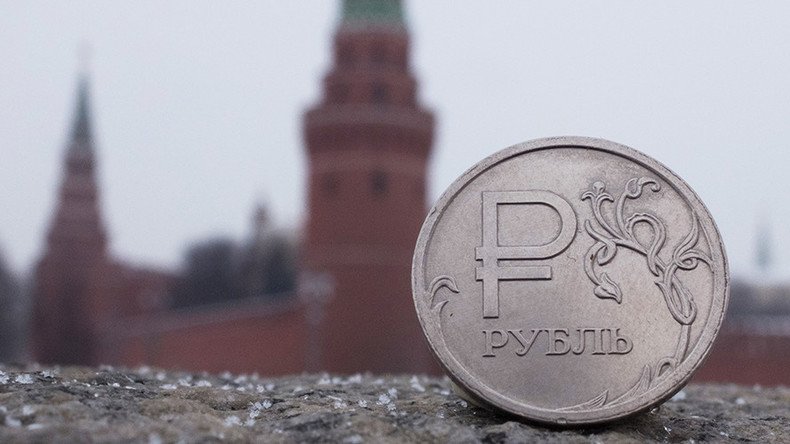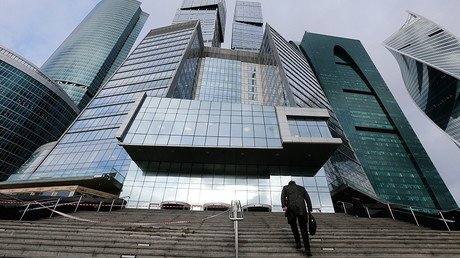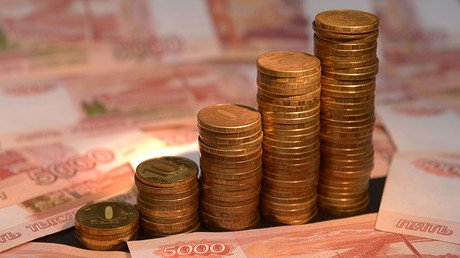Weak ruble as oil prices rise improves Russia’s economic outlook

Surging crude prices and a lagging domestic currency have increased Russian revenue with the country's economy showing signs of recovery.
Brent crude, which is used as a basis for the price of the country's main export Urals blend gained 22 percent this month, while the Russian ruble strengthened by only four percent against the US dollar.
The favorable exchange rate allows the government to gain from sales of dollar-denominated oil.
Russia’s 2016 fiscal plan was based on the government getting 3,165 rubles ($48.61) for each barrel of crude it sells. In January, the price tumbled to 2,245 ($34.48). The current recovery in oil prices helps the government bridge the budget gap.
“The ruble lagged oil on its way down, and now it’s lagging on the rebound,” Konstantin Artemov, a money manager at Raiffeisen Asset Management in Moscow told Bloomberg, adding that the equilibrium price was about 3,000 rubles ($46.07) a barrel.
Russia won’t be able to keep its target budget deficit at three percent of gross domestic product this year, according to First Deputy Finance Minister Tatiana Nesterenko. The share of earnings from energy exports in the state budget shrank to almost a third in the first quarter. Several years ago it amounted to more than 50 percent.
READ MORE: Russian economy to return to growth by year-end – Finance Minister
Russian bonds gained this week with the yield on 10-year securities falling three basis points to 9.22 percent. The country’s debt also declined in April.
Central bank officials are planning to meet on Friday, with the regulator expected to take steps to stop the Russian currency from strengthening.
“At the moment, it’s hard to believe in sustainable appetite for the ruble below 65,” said Evgeny Koshelev, an analyst at SocGen’s Rosbank unit in Moscow told Bloomberg. The aftereffects produced by a stronger ruble may bring an increase in imports and demand for cash and an inflow of speculative capital, according to the analyst.














